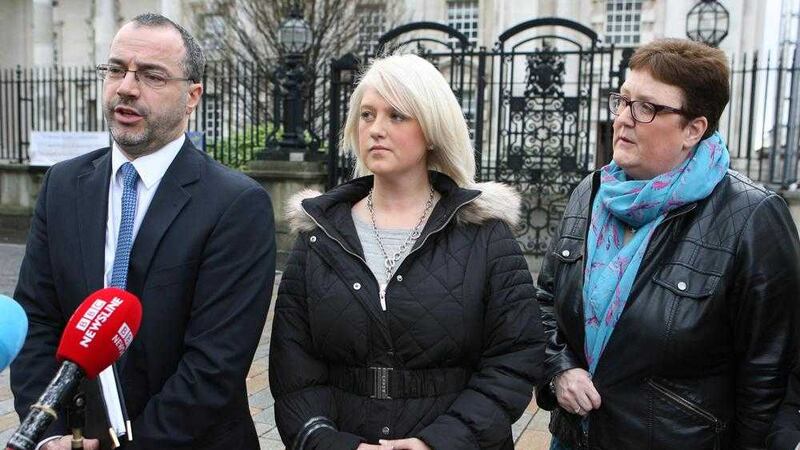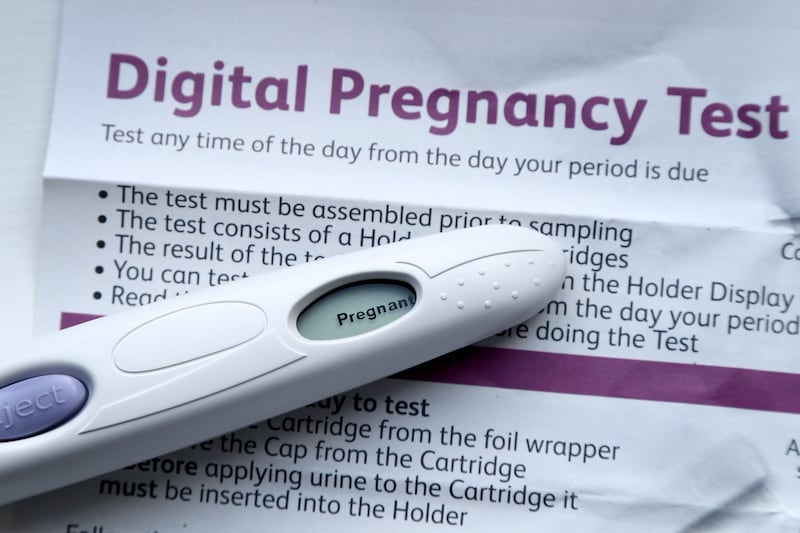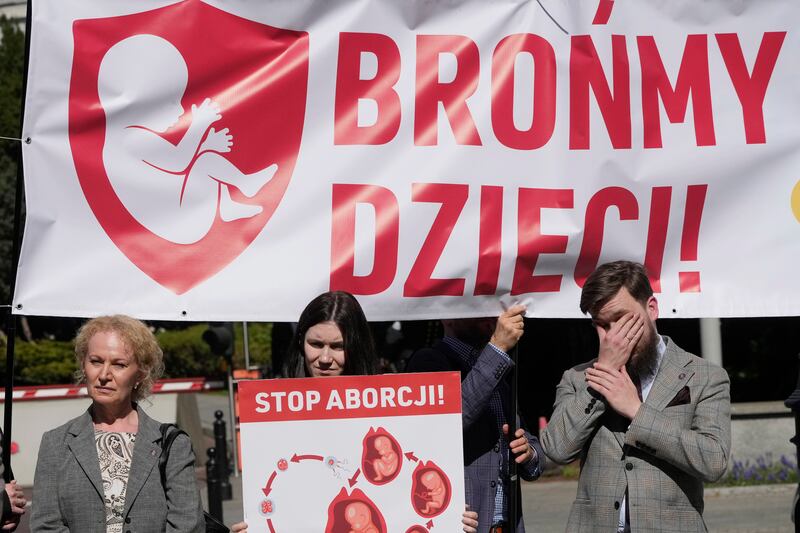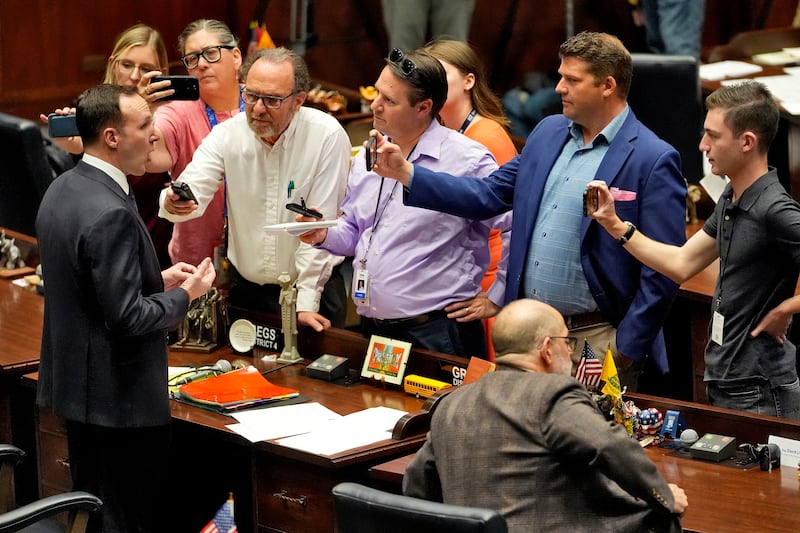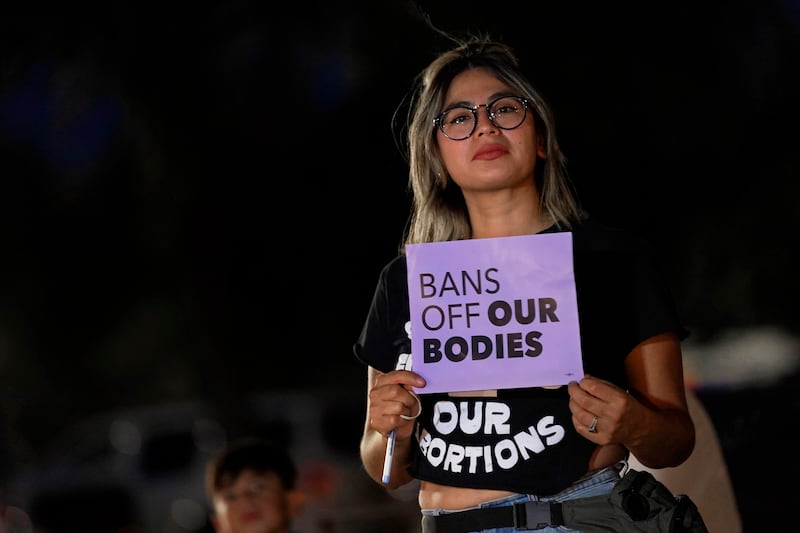A High Court judge has declared Northern Ireland's abortion law incompatible with human rights legislation.
Mr Justice Horner held that an alternative of widening the scope of permitted terminations to include cases of fatal foetal abnormalities or those resulting from sex crimes would be "a step too far".
His declaration of incompatibility does not change the law on abortions.
But it puts the onus on politicians at Stormont to make legislative changes - without being compelled bound to do so.
The landmark verdict came in a challenge mounted by the Northern Ireland Human Rights Commission.
Unlike other parts of the UK, abortions are currently only legal within the region to protect the woman's life or if there is a risk of serious damage to her wellbeing.
Judicial review proceedings were issued after the Department of Justice launched a public consultation on amending the criminal law.
That process concluded with a recommendation for new legislation dealing with cases of fatal foetal abnormality (FFA).
But with no proposed changes covering pregnancies resulting from sexual crime, the Commission claims the consultation does not go far enough.
It was also seeking to have terminations legalised in cases of rape or serious foetal malformation.
Last month the judge ruled that the current provisions in Northern Ireland for abortion were in breach of Article 8 of the European Convention on Human Rights.
He held that the failure to provide exceptions to the ban for FFAs and victims of rape or incest contravenes entitlements to respect for private and family life.
Following Mr Justice Horner's first determination he considered further legal submissions before deciding what relief to grant.
One option was to read the current legislation, the Offences Against the Person Act 1861, in a way that can include FFAs and pregnancies resulting from sex crimes.
Alternatively he could formally declare the legislation incompatible with the UK's obligations under the Human Rights Act.
In court yesterday he said: "There is near unanimity among the parties in this judicial review, and that includes the Commission, that for this court to try and read the impugned provisions in a Convention-compliant way would be a step too far."
Based on all submissions presented to him, the judge held that to be the correct view.
"Accordingly, as indicated my my judgment, and for the reasons set out in that judgment and as a matter of last resort, I make a declaration of incompatibility," he concluded.
During the legal battle arguments were also made on behalf of Attorney General John Larkin QC, the Catholic Bishops in Northern Ireland, and Sarah Ewart - a woman from Northern Ireland who went to England for an abortion after learning her unborn baby had no chance of survival.
The court heard claims that the current near-blanket ban is inhuman and discriminatory.
Counsel for Commission argued that traumatised women and girls being forced to cross the Irish Sea for pregnancy terminations are victims of the legislation in Northern Ireland.
More than 800 were said to have made the journeys in 2013.
Five of those were aged under 16, the court heard. Two years earlier 19 girls in that age group made the trip.
The judge stressed last month that the case was not about the general right to abortion.
Instead, he was only dealing with alleged failures to provide limited exceptions to the ban, and determining if this complied with the European Convention on Human Rights.
The Commission argued that opinion polls showed an overwhelming majority of the population of Northern Ireland in favour of abortion.
But according to the judge it is impossible to properly know people's views without holding a referendum.
He also noted a lack of political will to change the law of abortion to permit the exceptions.
Returning to the case yesterday, he pointed out that the opportunity for further legal submissions had been limited to views on whether it would be an abuse to prosecute in the two exceptional categories for abortion, and whether the provisions could be read down in a Convention-compliant way.
The judge said he was disappointed that some lawyers attempted to use it as an opportunity to introduce further evidence.
He also expressed concern that some submissions seemed to misunderstand or misrepresent the contents of his original judgment.
"For the record, it has never been suggested that fatal foetal abnormality is a medical term," he stressed.
"It is a shorthand description to cover a cluster of conditions which render survival outside a mother's womb impossible."
Mr Justice Horner added that sexual crime had been defined in his ruling.
"It means only either rape or incest. It was not intended to include other crimes of a sexual nature."
After setting out his decision, the judge gave the parties until Friday to agree on the terms of his declaration.
He insisted: "The final order will issue on Monday, whether agreement has been reached or not."
